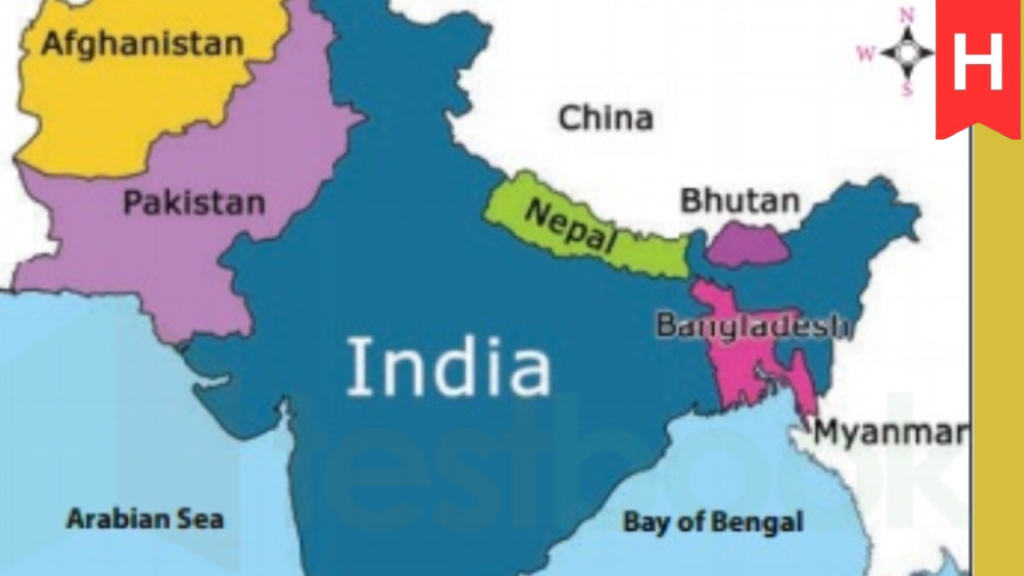Introduction
The article published in the editorial section of The Hindu Newspaper discusses challenges in India’s Foreign Policy in dealing with sudden political changes in its neighbouring countries over the last few years. It highlights how India has faced several unexpected events in countries like Myanmar, Afghanistan, Pakistan, Sri Lanka, Maldives, Nepal, and Bangladesh. Each of these events has had significant implications for India.
Article Explanation
- Unexpected Political Changes:
- Myanmar: A military coup occurred in 2021.
- Afghanistan: The Taliban took over in 2021.
- Pakistan: Prime Minister Imran Khan was removed from office in 2022.
- Sri Lanka: Gotabaya Rajapaksa was forced out due to riots.
- Maldives: The pro-India government of Ibrahim Mohamed Solih was replaced by a less India-friendly leadership.
- Nepal: Political coalitions collapsed, bringing in a government less friendly to India.
- Bangladesh: Prime Minister Sheikh Hasina, who had strong ties with India, faced challenges, causing concerns for India

India’s approach to foreign policy has been criticized for its focus on one side, often overlooking opposition or other political forces. For instance, in Bangladesh, India supported Sheikh Hasina’s government but failed to engage with the opposition. Despite past conflicts, India had to engage with leaders and parties in neighbouring countries, including dealing with the Taliban in Afghanistan and anti-India political parties in Sri Lanka and Nepal. The article suggests that India should avoid one-sided support, maintain good relations with various political groups, and promote a more inclusive and pluralistic approach to its neighbours. This will help navigate sudden political changes and prevent India from relying solely on one leader or party.
India needs to learn from its recent experiences in dealing with neighbouring countries, particularly in the context of political changes and its foreign policy approach. Key lessons include:
- Value old friends: India should remember and support its allies, even when they are no longer in power. The article points out that India lost its reputation when it refused to help Afghan officials fleeing the Taliban, which was seen as a betrayal.
- Avoid religious bias in diplomacy: India should not base its relationships with neighbouring countries on religious similarities or differences. For example, India’s relationship with Nepal has been challenging, while it has had good relations with Buddhist-majority Bhutan and Muslim-majority Maldives.
- Regain influence in South Asia: India needs to reassert itself as the leading power in South Asia. The region is currently being influenced by global powers like China and the United States, often at India’s expense. To counter this, India should work to revive regional cooperation mechanisms like the South Asian Association for Regional Cooperation (SAARC) and ensure that other regional groups remain active and effective.
- Address common challenges: Economic issues like joblessness and unequal growth are causing unrest in South Asia. However, long-term stability in the region depends on supporting and maintaining democratic principles.
In Conclusion. The article suggests that India’s South Asian foreign policy should be more flexible and inclusive, involving a wider range of political actors to avoid sudden political shifts. This approach will help India manage the consequences of these changes and maintain regional stability. By valuing old allies, avoiding religious biases, regaining influence, and addressing common challenges, India can strengthen its relationships with its neighbors and maintain its position as a regional leader.
Join our telegram channel for regular updates of The Hindu Epaper Editorial Explanation-https://t.me/Thehindueditorialexplanation
The Hindu Epaper Editorial Explanation given by Hello Student is only a supplementary reading to the original article to make things easier for the students.
In conclusion, preparing for exams in India can be a daunting task, but with the right strategies and resources, success is within reach. Remember, consistent study habits, effective time management, and a positive mindset are key to overcoming any academic challenge. Utilize the tips and techniques shared in this post to enhance your preparation and boost your confidence. Stay focused, stay motivated, and don’t forget to take care of your well-being. With dedication and perseverance, you can achieve your academic goals and pave the way for a bright future. Good luck!
The Editorial Page of The Hindu is an essential reading for all the students aspiring for UPSC, SSC, PCS, Judiciary etc or any other competitive government exams.
This may also be useful for exams like CUET UG and CUET PG, GATE, GMAT, GRE AND CAT
To read this article in Hindi –https://bhaarat.hellostudent.co.in/


One Reply to “The Shock-Effects Of South Asian Tumult. India’s Foreign Policy. The Hindu Editorial Explanation’ 14th August 2024.”